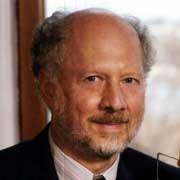
|
|
Joseph F. Traub
|
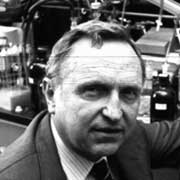
|
|
Ronald Breslow
|
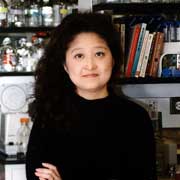
|
|
Yuan Chang
|
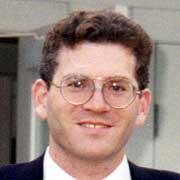
|
|
George Wolberg
|
Four Columbia University professors and one alumnus won five of the seven 1999 Mayor's Awards for Excellence in Science and Technology, Mayor Rudolph Giuliani announced today (March 8) at a reception in Gracie Mansion. The awards recognize the vital role that members of the scientific and engineering communities play in contributing to the success of New York City.
Joseph F. Traub, the Edwin Howard Armstrong Professor of Computer Science, and Ronald Breslow, University Professor of Chemistry, won the Mayor's Awards for Excellence. Yuan Chang, associate professor of pathology, and George Wolberg, adjunct professor of computer science, won the Young Investigator Awards for outstanding researchers below the age of 40.
A fifth award was won by GSAS alumnus Neil deGrasse Tyson, the director of the Hayden Planetarium at the American Museum of Natural History, for excellence in public understanding of science and technology.
Traub, who won in the category of technology, started his pioneering research on information-based complexity in 1959. He has applied the results to fields as diverse as computational finance, economics and physics. He has authored 10 books and some 120 journal articles. For the past 25 years, the Jenkins-Traub method has been the most widely used method for computing polynomial zeros. He holds the patent for new methods of valuing financial derivatives and risk management, which has proved invaluable to Wall Street.
Breslow, one of the world's premier chemists, won in the category of mathematical, physical and engineering science. His discoveries in biochemistry have contributed to the development of practical applications in technology and biomedical research, such as creating molecules that mimic enzymes. He has also discovered important biochemical reaction pathways and has worked to create molecules that inhibit cancer.
Chang's research has solved a long-standing and perplexing mystery of the AIDS epidemic--the cause of Kaposi's sarcoma, which is the most common cancer among AIDS patients. Using a novel molecular biologic technique, she discovered a new human herpes virus that causes the cancer.
"It is an honor to have our work on the virus that causes Kaposi's sarcoma recognized in New York, especially since this city is one of the epicenters of AIDS," she said.
Wolberg has made crucial contributions to the field of digital imaging. He wrote Digital Image Warping, the definitive book in the field, at age 26. Digital image warping has now been applied extensively in television, film, and science and engineering graphics. He is also a professor of computer science at the City College of New York
In addition to Tyson, the other award winners are David Sabatini of New York University, for excellence in biological and medical sciences, and Yao Wang of Polytechnic University as a young investigator.
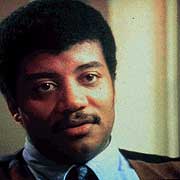
|
|
Neil Tyson
|
Each year, nominations are received through a comprehensive process that includes all of the city's scientific communities. Candidates must either live or work in New York City. The New York Academy of Sciences (NYAS) administers the review process, and the Mayor chooses winners from a list of finalists submitted by the NYAS.
|
